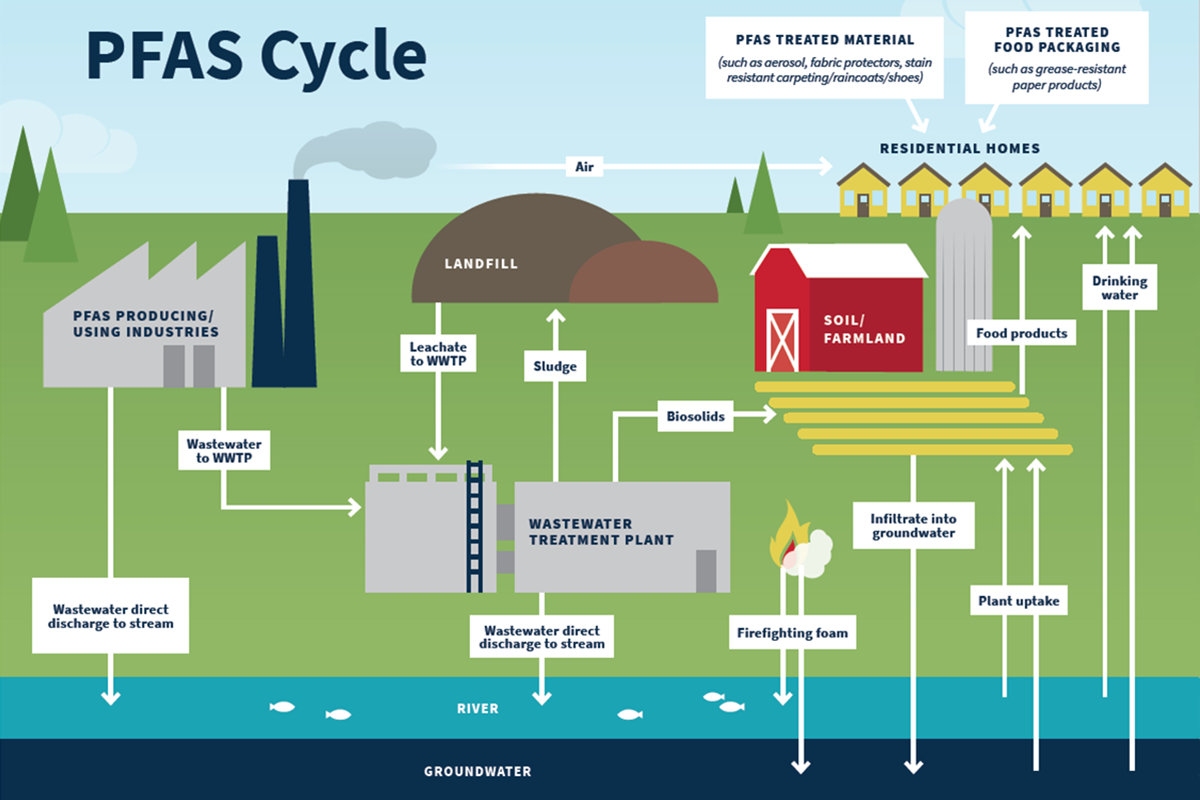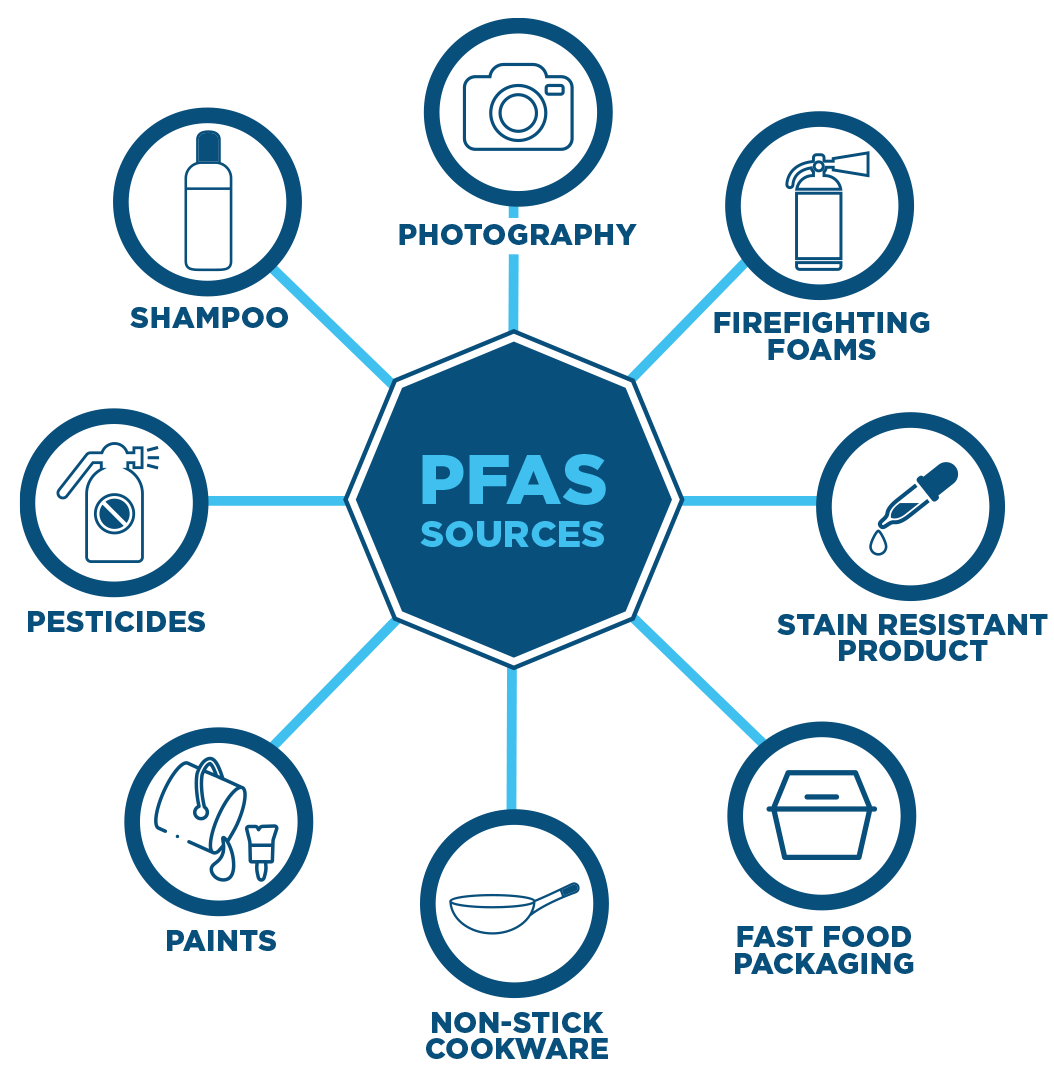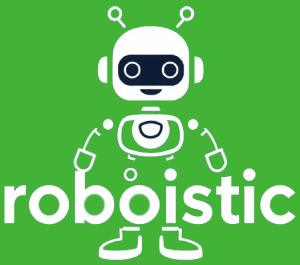The European Union is stepping up efforts to ban PFAS, a group of toxic chemicals known as “perpetual chemicals”. These substances, found in thousands of everyday products including disposable food packaging and cosmetics, are non-biodegradable and pose serious environmental and health risks. The new rules could have a significant impact on the consumer market.
- The European Union plans to ban PFAS, toxic ‘perpetual chemicals’ found in thousands of everyday products.
- These substances are non-biodegradable, accumulate in the environment and have been linked to risks of organ damage and cancer.
- The new rules could have a significant impact on the markets for cosmetics, clothing, electronics and household appliances.
- Some EU countries, such as Denmark and France, have already banned the use of PFAS in waterproof clothing and hygiene products.
- The EU provides exemptions for industries such as aviation, automotive and energy where PFAS are difficult to replace.
PFAS – the EU position

The EU authorities are finalising a draft regulation that could radically change the market for consumer goods. The proposal is to ban the use of PFAS, a group of chemical compounds that are also known as “perpetual chemicals” because of their extreme persistence. These substances have been used in thousands of everyday products over the years, from building materials and electronics to clothing and kitchenware to cosmetics.
The main problem is that PFAS do not break down in the human body, soil or groundwater. The European Chemicals Agency (ECHA) points out that the long-term presence of these substances in the environment leads to their accumulation in the ecosystem. Their toxic effects have been linked to kidney and liver damage, hormonal disorders and cancer. Of particular concern is the effect of PFAS on testicular cancer and thyroid disease .
Until recently, it was expected that regulations in this area would not come into force until 2026, but at the end of 2024, EU Environment Commissioner Jessica Roswall said that work on new regulations would be accelerated. Brussels has prioritised the issue and draft regulations are now being put forward and discussed with member states.
PFAS – what is it?
PFAS, or per- and polyfluoroalkyl compounds, are synthetic chemicals that are characterised by their extreme resistance to water, grease, high temperatures and friction. Because of these properties, they have been used for many years in the manufacture of many products such as sportswear, non-stick cookware, firefighting foams and electronic equipment.
Unfortunately, the same durability that made them attractive to industry now poses a serious threat. The bonds between carbon and fluorine, which are responsible for their stability, are among the strongest in organic chemistry. As a result, PFAS are virtually non-biodegradable and their removal from the environment is a complex and costly process.
Where can we encounter PFAS?

These hazardous chemicals are present in many of the products that each of us use every day. They can be found in, among other things:
- fast food paper packaging,
- greaseless baking sheets and baking paper,
- microwave popcorn bags,
- takeaway containers,
- some PET bottles and food wrappers,
- antiperspirants and shaving foam,
- creams with UV filters,
- foundation creams and face powders,
- waterproof mascara and eyeliner,
- lipsticks and lip balms,
- pans and pots coated with Teflon (PTFE),
- cheap silicone kitchen utensils,
- non-stick baking moulds,
- dirt-repellent tablecloths, curtains and carpets,
- technical fabrics and workwear,
- boots and sports jackets with DWR membrane,
- temperature and chemical resistant automotive parts,
- technical lubricants and synthetic oils,
- certain adhesives and mounting tapes,
- sealants and anti-corrosion coatings,
- fabric and footwear impregnators.
PFAS ban and industry
Hundreds of thousands of consumer products will be affected by the planned ban on PFAS. Many industries, in particular cosmetics, textiles, household appliances and electronics, will be forced to look for alternative raw materials. Businesses will have to adapt and adjust not only their recipes but also their processes and supply chains.
Some EU countries, such as Denmark and France, have already introduced their own restrictions on PFAS. Among other things, they have banned: the use of this raw material in waterproof clothing and hygiene products. Similar rules will now apply across the EU.
However, the EU provides for exemptions for certain sectors. This applies in particular to those where it is currently very difficult to replace PFAS. This applies in particular to the automotive, aerospace, energy and fire industries. In these sectors, the ban will be introduced later or on a limited scale.









